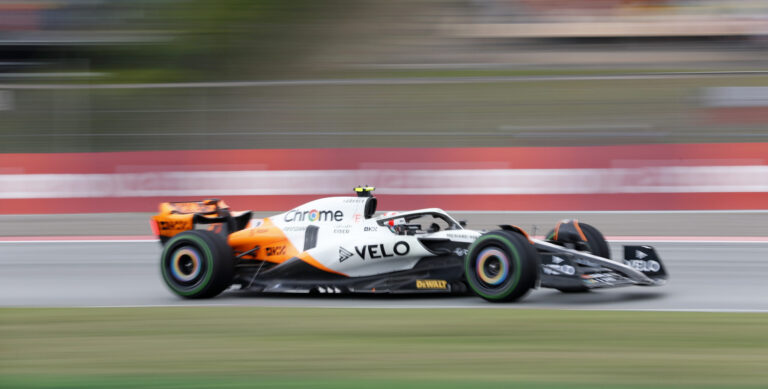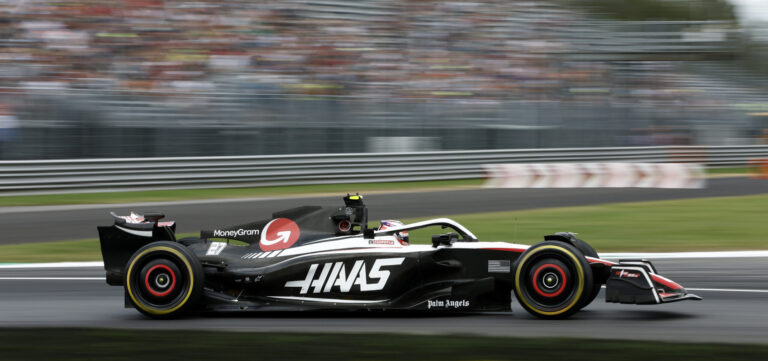In an era where making noise often takes precedence over conveying meaningful insights, we choose a less-travelled road, as Robert Frost would say. While the roar of engines and the thrill of speed may seem at odds with environmental stewardship, a deeper look reveals that motorsport is not only embracing sustainability but also accelerating innovation. In this article, we will explore how motorsport drives sustainability with far-reaching implications for the environment.
The Misconception: A common misconception is that motorsport is inherently detrimental to the environment due to the emissions from the cars themselves (around 1% of CO2 emissions). However, this view overlooks a critical aspect of the environmental impact of sports events: logistics and transportation. In fact, the majority of emissions associated with any major sport, including motorsport, stem from these activities (around 70% of CO2 emissions). Transporting teams, equipment, and spectators to various locations around the world constitutes the bulk of the carbon footprint for these events. This is a challenge not unique to motorsport but common across all major sports and events.

© BWT Alpine F1 Team
Sustainable Innovation: What sets motorsport apart is its proactive approach to sustainability. The motorsport industry is at the forefront of research and development in driving sustainable innovation. Here’s how:
- Advanced Powertrains and Engines: Motorsport has been a crucible for the development of cutting-edge technologies that make engines more efficient. Formula 1, for example, has introduced hybrid power units that are among the most efficient in the world. These engines harvest energy from braking and exhaust gases, demonstrating a significant leap in efficiency that trickles down to everyday road cars.
- Sustainable Fuels: The development of sustainable fuels is another area where motorsport is making strides. Series like Formula E and Extreme E use electric vehicles powered by renewable energy sources, setting benchmarks for the industry. Additionally, projects in Formula 1 and other motorsport categories focus on biofuels and synthetic fuels, which aim to reduce carbon emissions significantly.
- Aerodynamic Innovations: Aerodynamics plays a crucial role in reducing fuel consumption. The advances made in motorsport to enhance aerodynamic efficiency directly contribute to reducing the carbon footprint of vehicles. These innovations are increasingly being applied to consumer vehicles, leading to better fuel efficiency and lower emissions.
- Material Science: The use of lightweight materials developed in motorsports, such as carbon fibre and advanced composites, leads to weight reductions in vehicles, further enhancing fuel efficiency and reducing emissions. These materials are now finding their way into mainstream automotive manufacturing.

© Aston Martin F1
Real-World Impact: The innovations born in the high-pressure environment of motorsport often find their way into everyday vehicles, benefiting millions of drivers worldwide. The rigorous testing and development cycles in motorsport accelerate the adoption of new technologies in the consumer market. This technology transfer means that the sustainability efforts in motorsport have a direct and positive impact on reducing global emissions from road transport.
In conclusion, motorsport is uniquely positioned to lead the charge in sustainability within the sporting world. Its commitment to innovation, the transfer of technology to consumer vehicles, and proactive environmental initiatives make it a powerful platform for companies to showcase their sustainability credentials. By highlighting the broader impact of their sustainability efforts in motorsport, companies can effectively communicate their commitment to environmental stewardship, not just within the sport but in the real world as well. In this way, motorsport is not only a thrilling spectacle but also a catalyst for sustainable change, proving that speed and sustainability can go hand in hand.
This is original editorial content from Drive Sports Marketing, an agency specialising in Formula 1 sponsorship, Formula E sponsorship, MotoGP sponsorship, and WEC sponsorship.







